#english to chinese translation
Text
Professional English-Mandarin Chinese Translation Service
Learning alone without exchanges with others will lead to ignorance. 独学而无友,则孤陋而寡闻. For more information, visit https://www.morningstartranslation.com
#translation#editing#proofreading#localization#english to chinese translation#marketingtranslation#technicaltranslation#baniking#insurance#financial#certifiedtranslation#professionaltranslationservice#chinese language#linguistics#chiinese culture
2 notes
·
View notes
Text
How to Find Best English to Chinese Translation Services Online?
Finding the best Chinese to English translation services online requires research and consideration. Here are some steps to help you identify reliable and high-quality services:
Define your needs: Determine the type of translation services you require. Is it for business documents, technical content, personal documents, website localization, or something else? Knowing your specific requirements will help you narrow down the search.
Look for reputable agencies: Search for well-established translation agencies with a track record of providing English to Chinese translation services. It is better to look for reviews and testimonials from previous clients to check their reputation.
Check qualifications and experience: Ensure that the translators working for the agency are native English speakers and have expertise in the subject matter relevant to your documents. Experience and specialized knowledge are crucial for accurate translations.
Certifications and accreditations: Verify if the translation agency is certified by reputable organizations like ISO (International Organization for Standardization) for translation services. Such certifications indicate adherence to quality standards.
Privacy and confidentiality: Ensure the agency has robust privacy and security measures in place to protect your sensitive documents and information.
Ask for samples: Request sample translations from the agency to assess the quality and accuracy of their work. It will give you an idea of their translation style and whether it meets your expectations.
Get quotes and compare prices: Contact multiple translation services to obtain quotes for your project. Though cost is a factor, it's important to maintain a balance it with the service quality provided.
Turnaround time: Check the turnaround time offered by each agency. Depending on your needs, you might require a quick turnaround or can opt for a long deadline for more affordable rates.
Customer support: Ensure the translation agency provides excellent customer support and is responsive to your queries and concerns.
Translation tools and technology: Inquire about the translation tools and technology the agency uses. Translation memory systems can help improve consistency and reduce costs for ongoing projects.
Reviews and testimonials: Look for independent reviews and testimonials from other clients to get insights into their experiences with the translation service.
Avoid machine translation: Avoid relying solely on machine translation services for important documents, as the quality may not be up to par with human translation.
Finding the best Chinese to English translation service is crucial for accurate and reliable results. So, it is better to take your time to research and compare options so that you can make an informed decision.
#English to Chinese Translation#Translation Service Legal#Universal Translation Service#Legal Translation Service#Nyc Translation Service
1 note
·
View note
Text

Unlocking the Benefits of English to Chinese Translation Services!
Language translation can be a complex and daunting task. This blog will break down the benefits of translating your business communications into Chinese. Read here: https://bit.ly/EnglishToChineseBenefits
#English to Chinese Translation Services#English to Chinese Translation#English to Chinese#English to Chinese Translation Services in India#English to Chinese Translation Services in Delhi
0 notes
Text
i just posted but i feel INSANE hua cheng’s entire appearance in the ghost groom arc is just symbolism.
when xie lian is alone (having sent everyone away, in danger but perfectly capable of fighting his way out), hua cheng steps in front of xie lian, offers his hand, and guides xie lian through the woods to where he needs to be. monsters cower before him, magical barriers don’t stop him, he steps on the skulls of enemies and crushes them so thoroughly that xie lian behind him feels like he is walking on flat ground. he doesn’t just swoop in without asking — he offers his hand, and waits, and xie lian willingly reaches out and lets himself be guided. and his grip is featherlight, even as he steers xie lian through danger and darkness. his blood rain warns away all who would dare harm them, but xie lian doesn’t get hit by a drop. and hua cheng does this all in his true form, not in disguise, because he’s not playing a character or trying to achieve anything, this is just him. despite not being confident enough to face xie lian directly, hua cheng has already shown him exactly who he is.
(now excuse me while i gnaw through an entire wall because how was this not glaringly obvious to me all along)
#tgcf#tgcf meta#hua cheng#my hyperfixation demon#hualian#kinda ig#rereading tgcf#goddd#writing this post was a fucking EXERCISE in pronouns#but also. augh. stuff that i think. the translation doesn’t get across.#i checked the eng translation and i think. the english gets preoccupied with the descriptions#and doesn’t get across the very. symbolic atmosphere of the whole thing. for me anyway#like when you’re performing a ritual and you can feel the meaning soaked into every gesture. it hit me when i was reading the chinese#something something orpheus and eurydice. hey. hey that’s a thought.#stuffs that into the back
516 notes
·
View notes
Text

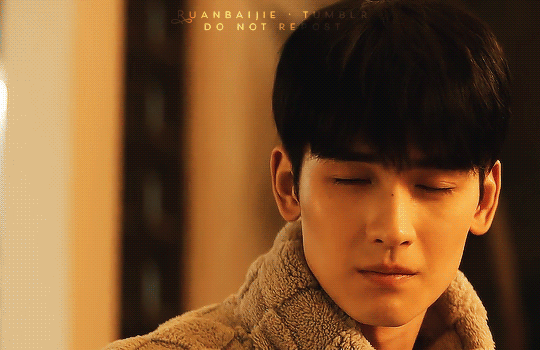
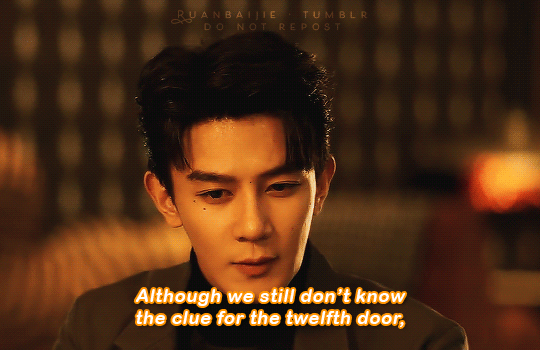



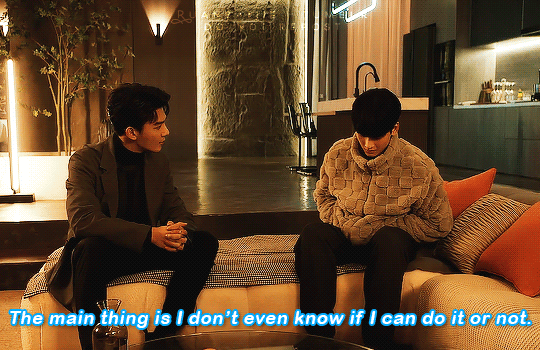

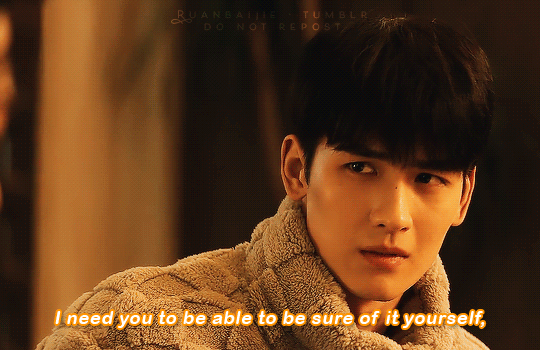
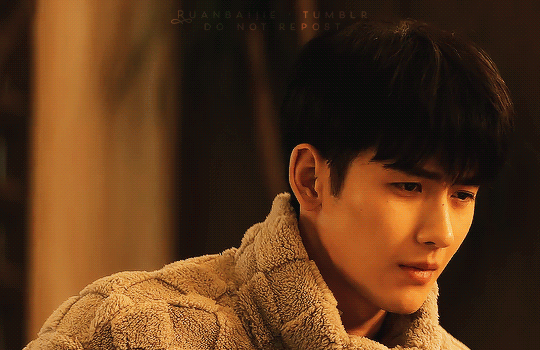
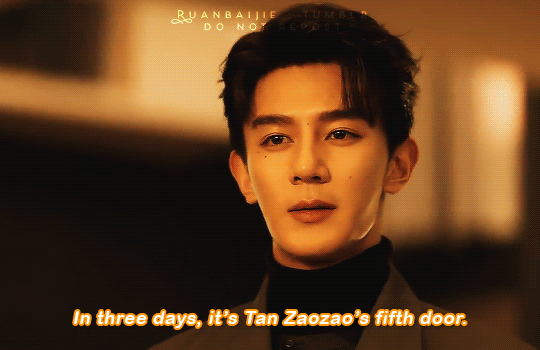




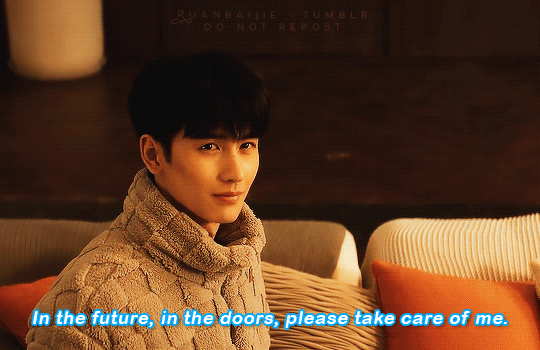
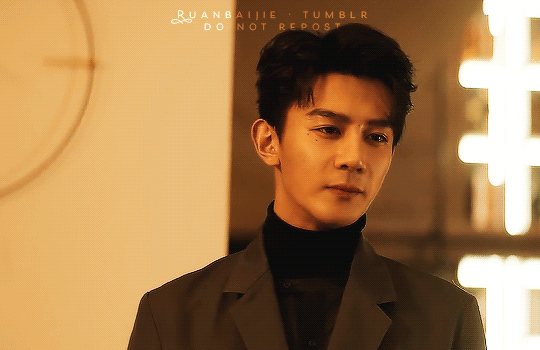

哎。我现在就能回答你。我愿意。
THE SPIREALM 致命游戏 (2024) 1.39
adapted from the danmei novel Kaleidoscope of Death 死亡万花筒 by Xi Zi Xu 西子绪
#userdramas#asiandramanet#cdramaedit#cdramasource#致命游戏#死亡万花筒#the spirealm#thespirealmedit#kodedit#kaleidoscope of death#asianlgbtqdramas#danmeiedit#danmei#*gifs#xia zhiguang#huang junjie#userinahochi#userkimchi#tuserjade#seamayweed#i know i've giffed the last part of this scene before but#this entire thing lives in my head RENT FREE#also did i purposely translate rnz's qn so that lingling would reply 'i do' in english as he did in chinese#yes#yes i did#this was a marriage proposal and i'm not taking alternate explanations
124 notes
·
View notes
Text
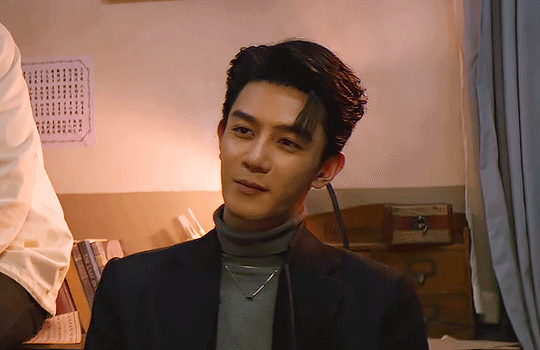

+ bonus Lingling honest reaction:
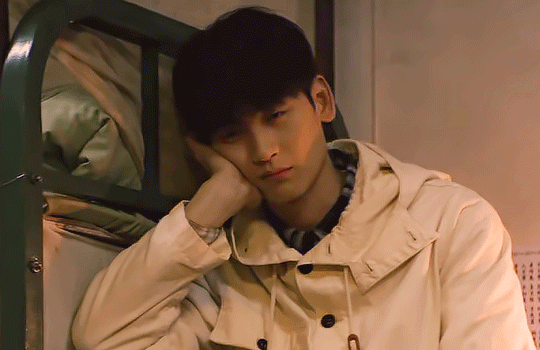
My judgement is right after all. If her brother is like this, then Baijie must be even kinder and more compassionate than you.
The Spirealm 致命游戏 (2024) | Ep. 27
#the spirealm#致命游戏#kaleidoscope of death#ruan nanzhu#ling jiushi#li dongyuan#xia zhiguang#huang junjie#liu xiaobei#cdrama#cdramasource#kodedit#userhanyi#*gifs:mine#huge fan of whatever is going on between these three QUITE HONESTLY#the way lingling's caught somewhere between slightly amused and absolutely disgusted with them#translation notes: in chinese nanzhu actually says “your little mouth is so sweet” but it basically means you're a sweet talker#it is also a lot less sexually charged in chinese than the literal translation is in english lol#i've given up on coloring i'm just replacing the garish yellow filter with a slightly less garish red one
106 notes
·
View notes
Text
Localization: Tartaglia’s Title & In-Game Self Introduction
I feel that Tartaglia’s codename as a harbinger, “公子” (gong1zi3), is better translated to “Young Master” rather than “Childe” since the former is more easily understood and blends in with Liyue culture (more on that shortly). Does the English word “Childe” sound like a title or a name to the average player I wonder? Even though the title “childe” refers to “an archaic English word that refers to the son of a nobleman who has not yet attained knighthood” or so the etymology section on his wiki page says.
And I believe the name Tartaglia comes from the stock character in traditional Italian theatre, commedia dell’arte. Please correct me if I’m wrong, but “Tartaglia” translates to “the stutterer”, I think? I’m not familiar with Italian culture; I wonder if the stock character has any relations to being a childe.
The Chinese term 公子 understandably comes up often in Chinese 武侠/wuxia (Chinese martial arts) and 仙侠/xianxia (spiritual cultivation, fantasy with gods/immortals/etc) genres, so if Tartaglia really wanted to blend in with Liyue… I mean, if his title was “Young Master” then it wouldn’t be suspicious if in Liyue you hear someone be referred to as “Young Master”. It could be Xingqiu for all they know. Of course in the game the word “childe” is pronounced (?) like “child” but if said “child” sounds like a young man, wouldn’t the facade be broken easily…?
Zhongli and Traveler calling him 公子 all the time wouldn’t rouse suspicion if in English it’s just “Young Master”. “Young Master did this. Young Master was at that place,” sort of feel.
More importantly, his introduction:
Edit: Final line can be better translated as “Things like names are really just aliases” for a casual tone more fitting to the original
.
(Original Chinese)
???:你们可以叫我「公子」喔。
派蒙:哇…性格好糟糕,救过我们一次就把我们当仆人?
公子:哈哈,我没有那个意思。「名字」这种东西啊,只是代号而已。
.
(Official English Localization)
???: Call me Childe.
Paimon: Childe? What, so we're supposed to dote on you?
Childe: Haha, no no, not at all. It's an alias of sorts.
.
(Actual English Translation)
???: You can just call me “Young Master”.
Paimon: What kind of attitude is this?* You saved us once and now you’re treating us like servants?
Young Master: Haha, that’s not what I meant.** Things like “names”… are just aliases.***
.
* T/N: literally, “Wow, what a terrible personality you’ve got.”
**T/N: literally, “Haha, I don’t have such intentions”
***T/N: literally, “codenames”
#dusk analysis#Genshin translation#translation#Tartaglia#Childe#公子#达达利亚#原神#genshin impact#English translation#chinese culture#commedia dell'arte
202 notes
·
View notes
Text

妖族七大圣 Seven Great Sages of Yao Kind
[ID: A character line-up of the Seven Great Sages, left-to-right by seniority status and accompanied by their king title in seal script. They are all dressed in varying levels of armor in an overall red-orange-yellow color palette. Bull Demon King has one hand on his hip and the other hand holding half of a skull with two fingers up like a wine bowl. Jiao Demon King has one hand on his hip with the other on the hilt of his sword. Peng Demon King is standing, wings not folded but not outstretched, with his hands in mudra positions. Lion-Camel King is smiling with his eyes closed, one paw hooked onto his belt and the other resting within his off-the-shoulder outer shirt. Macaque King is standing with hook swords in each of his hands. Golden Snub-nosed King is leaning against a wolf's teeth staff. Sun Wukong is standing, arm slightly up and head tilted down, his staff held behind him. End ID]
#my art#journey to the west#jttw#xiyouji#sun wukong#monkey king#character design#hanfu#visual development#bull demon king#jiao demon king#peng demon king#lion-camel king#macaque king#golden snub-nosed king#JUST FYI my jiao demon king macaque king and golden snub-nosed king are all girls#king was a gender neutral title and ancient chinese used the same pronoun for everyone (他 or 佢 depending on region)#using he/him for them in english because that gn pronoun is now translated as he/him and also They Are Butch Icons#ourgh i was gonna post this alongside Erlang Shen's Seven Sages too but alas his is not getting done anytime soon#but it will come eventually#also i knoWWW they did seniority by how physically big they were isnt of their actual senioritiy#but you cant give me a dragon and expect me to not make them tall and lanky#so im gonna say their humanoid forms are not reflective and that Bull Demon's bull form is bigger than Jiao Demon's dragon form
518 notes
·
View notes
Text
I was talking to a famous Chinese celebrity in German. He was responding in English. The dream had Chinese subtitles. I do not read Chinese, but I knew the translation was wrong. You know, seeing as I still don't know how to read Chinese.
2K notes
·
View notes
Text
Thousand Autumns English Volume Covers 1-5 Are Now Complete!
Thousand Autumns (Qian Qiu) have officially been taken and published by Seven Seas Publishing. Take a look, the volumes are all now complete. Special edition of the last volume (5th volume) are also available with limited supplies to pre-order.
They're so beautiful and I can't wait to stuff them all up in my bookshelves🥺❤
The arts were done so beautifully by Mimo.
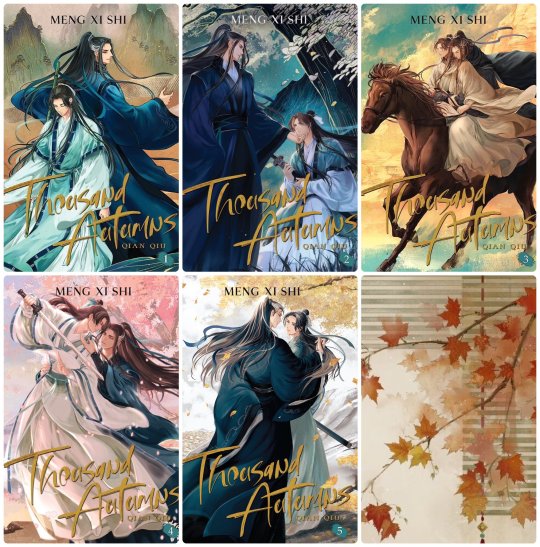
The drastic change in the fifth volume compared starting from the beginning of the first volume is 😔💖
They're really closing the final curtain with the season autumn💛💛
Spring-Summer-Autumn-Winter; In the end, who can still remain eternal?

Look at the symbols on the side of the books! <3
Vol. 1: Shen Qiao's Bamboo pole
Vol. 2: Scroll (Zhuyang Ce)
Vol. 3: Ah-Qiao Tangren
Vol. 4: Shan He Tong Bei Sword
Vol. 5: Banbu Peak (Xuandu Mountain)
It's all related to our beloved protagonist Shen Qiao.
Please read Qianqiu if you haven't! Let's support the authors too by buying the official books if you can.
#千秋#qianqiu#thousand autumns#yan wushi#shen qiao#yanshen#meng xi shi#text post#english translation#chinese novel#book cover#cover#digital art
45 notes
·
View notes
Text
English-Chinese Translation & Localization Services
Attention to refined taste comes only after the stomach is sated. 食必常饱,然后求美(shí bì cháng bǎo,rán hòu qiú měi)For more information, visit https://www.morningstartranslation.com
#translation#editing#proofreading#localization#languages#professionalservices#financial translation#business translation#legal translation#technical translation#certified translation#professional translation service#language service#document translation#written translation#certified translator#chinese translator#chinese editor#english to chinese translation#high quality translation#marketing#business plans#annual report#consulting#audit
1 note
·
View note
Text
On my hands and knees begging the English translators to find a better word for “sworn siblings” other than just “siblings.” I get that sworn siblings aren’t a concept in western media (or at least not in the same way. I know we have found families), I get that they can’t just say these characters are dating because censorship laws, but like… there’s gotta be a better word for this.
#honkai impact#genshin impact#bronseele#cynonari#Mihoyo they already kissed each other on the mouth- please stop calling Bronya and Seele siblings#we all know Cyno and Tighnari are married and Collei is their kid- don’t pretend they’re all just siblings now#i was told there was also an example in hoyo’s dating sim game but I haven’t actually played that so no comment#I feel like the easiest way of fixing this problem would be to just use the actual chinese word#there’s just some things that can’t be directly translated#or they could just describe the relationship without putting any label on it#but I feel like this would help make a bigger distinction between romantic sworn siblings and actual adopted siblings#and maybe put an end to the Kaeluc debate#reminder that this is all directed at the English translation and not the main writing team
238 notes
·
View notes
Text
[Book Rec + Reaction/Thoughts] The Lantern and the Night Moths 灯与夜蛾 by Yilin Wang
An anthology of translated poems by five modern or contemporary poets and accompanying essays by the translator, @yilinwriter.
You can find the pronunciation guide and list of corrections here!
The cover art, a beautiful expression of the tone of this collection, is by Taiwanese artist Ciaoyin (check out her gorgeous insta!). I'm looking forward to the arrival of the physical book as my tab absolutely does not do it justice xD

Anyway! The official release date is 02 April 2024 though there have been some very thoughtful reviews by early readers already. Here, here, here and here.
(It was an ARC that I received too… though in the time it took to put this together, the ebooks have already gone out to readers >.< typical snail yj!)
Instead, I’ll tell you who I think would be interested in this book or might benefit from reading it, then share things that are cool about it from the perspective of a bilingual hobbyist translator + lover of ancient poetry and lyrics.
Who should read it?
If annotations, translator’s notes and reflections spark joy for you...
If you’ve ever read poetry translations and been intensely curious about what goes on under the hood...
If you’re a translator yourself wanting to hear another voice...
Definitely check this out!
Also if you’re CN+EN bilingual and have ever read something in English that references Chinese terms and concepts etc. except ONLY in English, pinyin or wade-giles and been utterly frustrated by the ensuing guessing game (like me) Fear Not.
That will not be a problem here.
I really appreciate how Chinese words are used naturally where needed for concepts and quotes - they are also translated for those who can't read Chinese so no one is left out. It made this book of and about translation (and more) super comfortable to read! The solution is so simple, so direct, so rarely used that I am amused.
Oh, but do note that the Chinese characters are in simplified though!
The poems are organised by their writers who are listed here by order of birth year, not appearance in the book:
秋瑾 (Qiu Jin, 1875 to 1907)
废名 (Fei Ming. 1901 to 1967)
戴望舒 (Dai Wangshu, 1905 to 1950)
小西 (Xiao Xi, 1974 to _)
张巧慧 (Zhang Qiaohui, 1978 to _)
Altogether, that covers nearly the last 150 years up to now. I’ve never really been into poetry by poets in such relatively recent times, in part because I’d been holding on to this stereotype of them spurning Classical Chinese and ancient poetry in the first half of the 20th century (not entirely true, as I came to realise xD). It made sense and was understandable, but felt sad.
Yet am I the target audience for this book?
Very much so.
In ways I didn’t think I would be too! It was so much fun to experience this both as a reader and a translator that I thought I’d share it here, where we are appreciating Chinese poetry together.
If you didn’t think you’d enjoy modern Chinese poetry, hey, give it a chance!
Oh yeah - on the way home a while back, I was talking to a friend about translation and was surprised to hear that her impression was that it ought to be a straightforward process. Like isn’t it a 1:1 conversion? At some point, ‘what’s the difference between something google translate might return, and how you would say it?’ was asked, and oh that was a delightful question to my ears! I showed her one of my comparison sheets where an original text is laid out alongside multiple translations line-by-line, briefly explaining some common and unique choices and how the people who had translated those probably arrived at the various interpretations. She was pretty amazed to see that the answer to her question was: very different. Hey, it’s a complicated process!
But there’s only so much one can explain in the space of a train ride. That’s why The Lantern and the Night Moths is a book I would also rec to someone like this friend of mine - open minded and curious but never having the chance to think about or encounter the craft of translation.
Like Yilin says, ‘the meaning of a word cannot be fully expressed in one single translation, nor through a series of translation attempts’. She then explains why with great attention to detail and some solid examples from one of the poems with word choices loaded with subtle connotations :D
What's interesting about it?
Okay, for one, Yilin shared a playlist of music that she listened to while working on this book. Here is the link to the spotify one and the one on youtube. Check them out! They sure put me in the mood to read xD (favs: 别知己, 小神仙 & 去有風的地方) Afterwards, this made so much sense like - ah! an audio moodboard.
She's also putting together these adorable mini profiles of each poet along with a cmedia and tea rec to match their vibes. Go see them on her instagram xD
Now to business...
structure
What really helped keep the reader’s focus was the way each section is organized, how the poems and accompanying essay were presented and finally the short bio of each person right at the end.
The poets are first introduced through five or six of their poems, works well suited to this purpose. Their voices, distinct through the vision, ambition and emotion of their words, are brought across by Yilin’s sensitive, thoughtful and poetic translations into English. These translations were also creative and transformative in a way that made so much sense after reading one of her reflections on the process, how she ‘must guide it with gentle hands to ensure its spirit is kept alive and intact during this transformative, and often excruciating process’. A rebirth into another language!
Personally, I’ve come to think of reading translations as looking at a work through another’s eyes. So it’s delightful when the translator’s presence is discernible, and even more so when the reader is given insight into their intention and process via commentary.
Yilin’s essays coupled with the poets’ bios at the end provide a means to go back and appreciate their works in context of their circumstance and inspirations. Similarly, to read the translations with a changed perspective.
I don’t know how much of a thing this is with translated poetry anthologies in English - can count the number I’ve read with both hands lol, and they’re all of the ancient chinese poetry variety - but I really like this design.
drawing on poets who came before them
Remember how we’re always recognizing traces of inspiration from ancient works (to them) in poetry of the various dynasties? 李商隐 Li Shangyin of Tang for example, was influenced by 楚辞 Verses of Chu and folklore and mythology such as that in 山海经 Classic of Mountains and Seas, 李白 Li Bai frequently references poets and history of the 魏晋 Wei-Jin era, and 王维 Wang Wei was clearly familiar with Buddhist scriptures which were translations themselves!
Just like the late Táng poets whom he praised for boldly deviating from the voices before them, Fei Ming used popular references and tropey shorthands ‘in contexts utterly different from the original, reimagining them anew’. Dai Wangshu, too, ‘boldly re-envisioned what modern poetry could look like by revisiting the classics’. In fact, in his very relatable ‘To Answer the Visitor with Classical Imagery’, I see Li Bai’s 春夜宴桃李园序, Qu Yuan’s 离骚 and lots of - as the title says - classical imagery, as if pulling out painting after painting to describe a feeling.
And Dai Wangshu’s faith in the translatability of poetry, that ‘poetry isn’t what is lost in translation, but rather, what survives it’ reminds me of what a friend, @xiakeponz, said that I agree with so much - because readers can ‘experience something in their own individual way through (your) shared humanity rather than language alone’.
poetic tradition and beyond
Between the lines of contemporary poets Zhang Qiaohui and Xiao Xi, I can really see the charm of plain vernacular, how it can be beautiful, incisive and clever in turns. Even as it seems to have moved further than ever from the structure and language of literary Chinese, the themes that inspired common motifs remain a part of life. Mother and divinity, homesickness, finding oneself, tributes to admirable spirits and the issues that trouble society - just in a new form and with different ways of expression.
Qiu Jin
So many FEELINGS about what Qiu Jin was doing - ‘I awaken the spirits of women, hundreds of flowers, abloom’. I would love if she could see the world now. So many things for her to rouse and fight against, but at the same time just as many to be proud of. I am so in awe of her, but now hearing her loneliness and struggle there is a soft spot in my heart for those too.
conclusion
So so so…
Qiu Jin’s admirable fire and lonely resolve. Zhang Qiaohui’s precious ability to express beauty in the mundane and in pain. Fei Ming’s utter delight! He is having so much fun and when* I’m vibing, I feel it too. Xiao Xi’s critical eye and keen observation of the world. Dai Wangshu’s whimsical charm and passion for translation. Finally, Yilin Wang, the connecting thread wound through them all, bringing them together so that we may be acquainted.
*Reading his poetry is like unwrapping a seamless, many layered present. A gift that keeps giving - if only you have a key 😅 Fortunately, Yilin has halved our struggle 🤣
I’ve had such a great time with them all. And if you come, I hope you will too!
#The Lantern and the Night Moths#chinese poetry#Yilin Wang#poetry in translation#灯与夜蛾#Qiu Jin#Zhang Qiaohui#Fei Ming#Xiao Xi#Dai Wangshu#rambly reviews#i read from Fei Ming onwards on my kobo LOL but that one has no colour so...#i might do more of these review-y rambles about poetry things if y'all are interested?#i've been reading LOL#some are chinese some are english#all of them fun and enlightening
28 notes
·
View notes
Text
makin my way through the new tgcf edition(!!!) and one thing i noticed that doesn’t come across in the english translation is how much the ghost groom plotline is clearly just meant to frame our first impression of hua cheng.
the phrase for ‘ghost groom’ is 鬼新郎 (gui xin lang)— the same 郎 in san lang (三郎). ‘red wedding palanquin’ is 红花轿 (hong hua jiao) — literally “red flower palanquin”. then obviously hua cheng appears and escorts xie lian out of the palanquin, and even begins to lift the veil. the villain turns out to not be a groom at all, so the entire point of the misdirect was to create this association
so when hua cheng rolls up five minutes later, dressed in red, and introduces himself as ‘san lang’, to the reader there’s a huge blinking sign over his head reading
HUSBAND!!!! GHOST HUSBAND!!!!
#tgcf#tgcf meta#hua cheng#my hyperfixation demon#rereading tgcf#like the thing is those are just the normal words for the things. groom. palanquin.#but it’s obviously chosen on purpose to create those associations#it’s so obvious and on the nose even in the english trans. but the identical words really. stands out. in the chinese#in a way i didn’t pick up on as strongly in the english#just thought this was a fun translation bit to share#my chinese is real bad guys but reading tgcf is so fun#meta stuff
144 notes
·
View notes
Text
The Fantastical Beasts at World’s End Chapter 28 English Translated
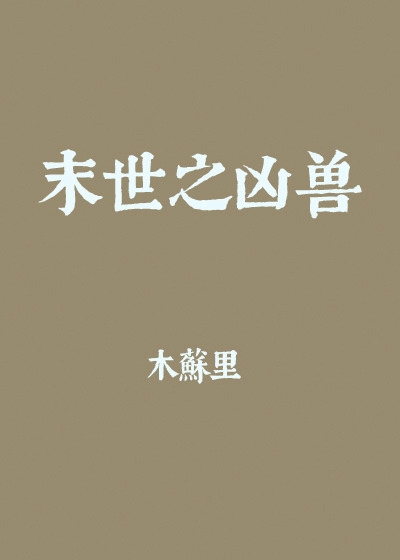
Hello everyone~ ^v^
Chapter 28 of The Fantastical Beasts at World’s End novel by Mu Su Li now available~
Link (viewable and downloadable): >> Chapter 28 <<
!!!!Please note:!!!!! The cover for this novel that we shared in our previous announcement of chapters 24 and 25 is a fan-made cover. Please do not submit it anywhere (on sites like novelupdates). Since it is a fan-made cover by our team member, we just wanted to share it with everyone who follows us. Please do not share it or upload it on any novel reading websites.
Please also note: In case you try to open above link or any links from us on your phone and get an error message, please just try opening the link in your phone’s internet browser, go to the address bar and remove the “href.li” part and proceed to open the link.
*********
If you like this story, then please consider supporting the author by directly purchasing the novel from jjwxc >> Here
A guide on how to purchase from jjwxc is linked at the top on >> this page
*********
Our ongoing projects: >> Link
Our revamped Carrd: >> Link
*********
Happy reading~! :D
#the fantastical beasts at world's end#末世之凶兽#novel#chapter 28#english translation#fan translation#chinese danmei novel#mu su li#pure love#fantasy#drama#apocalyptic#supernatural beasts#treasure chest subs
21 notes
·
View notes
Text

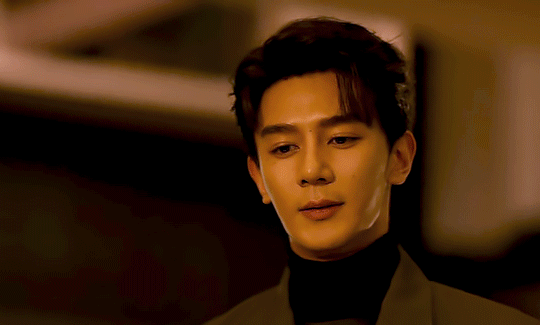
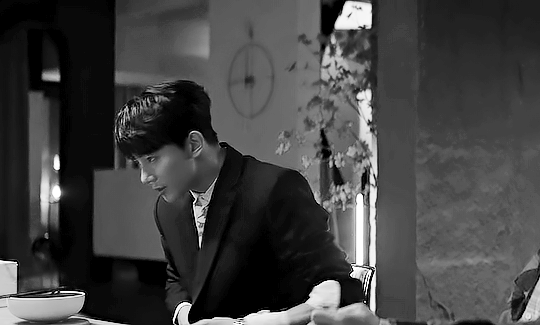
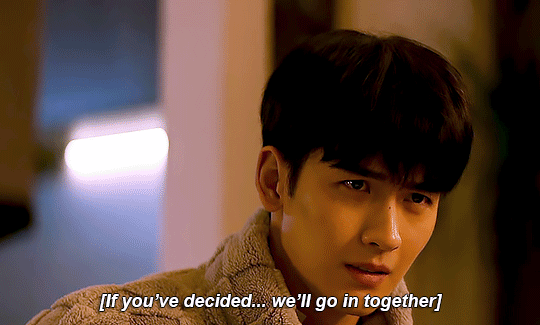

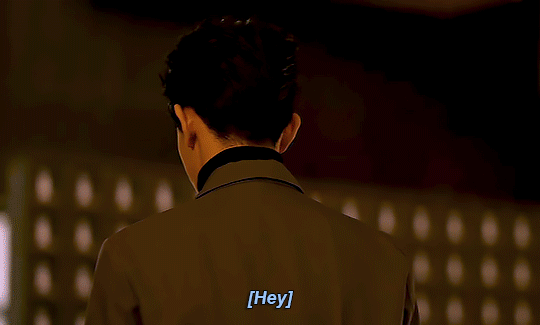



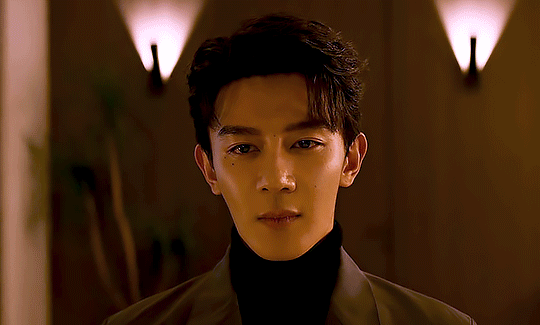
The Spirealm 致命游戏 (2024) | Eps. 8 + 39
#the spirealm#致命游戏#kaleidoscope of death#ruan nanzhu#lin qiushi#ling jiushi#xia zhiguang#huang junjie#cdrama#cdramasource#kodedit#userhanyi#*gifs:mine#i'm gonna fucking cry#the flippancy of the first answer vs. the care and weight of the second#the framing where both times nanzhu is facing away from lingling when he gives him his answer#nanzhu's look of disappointment in the first vs. wonder and almost reluctance to believe what he just heard in the second#he doesn't even dare to turn around#SOMEBODY HELP ME i am not well#translation notes: the second answer from lingling is “我愿意” which means “i'm willing” or “i'll do it”#notably “我愿意” is also the traditional marriage vow in chinese - the equivalent of the english “i do” at the altar SLDJFSLJFSLDJFLSDJF#anyway xia zhiguang's microexpressions ughhhhhh they hurt me
72 notes
·
View notes